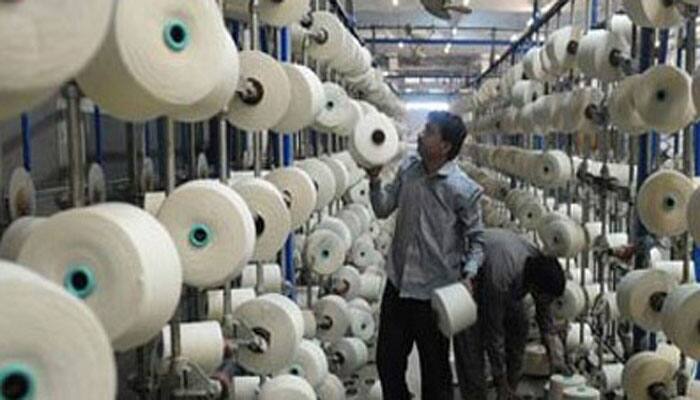New Delhi: The Economic Survey for 2016-17 tabled by Finance Minister Arun Jaitley in parliament on Tuesday said that apparel, leather and footware industries have enormous potential for creating jobs as well as for exports.
The survey said the three sectors are eminently suitable for generating jobs that are formal and productive.
"These sectors provide immense opportunities for creation of jobs for the weaker sections, especially for women, and can become vehicles for broader social transformation in the country," the survey said.
According to the survey, the country has an opportunity in the global context to push exports due to rising wage levels in China.
"India is well positioned to take advantage of China`s deteriorating competitiveness due to lower wage costs in most Indian states," the survey noted.
Besides, the survey listed a number of challenges faced by these sectors.
"The space vacated by China is fast being taken over by Bangladesh and Vietnam in case of apparels and Vietnam and Indonesia in case of leather and footwear, while Indian companies struggle in face of a set of common challenges related to logistics, labour regulations, tax and tariff policy and disadvantages emanating from the international trading environment compared to competitor countries," the survey pointed out.
The Survey, however, observed that the space vacated by China is fast being taken over by Bangladesh and Vietnam in apparels and Vietnam and Indonesia in case of leather and footwear.
But Indian companies are struggling in face of a set of common challenges related to logistics, labour regulations, tax & tariff policy and disadvantages emanating from international trading environment compared to competitor countries, it added.
The Survey said apparel exporters will get relief to offset the impact of state taxes embedded in exports, which could be as high as about 5 per cent of exports, as part of the package approved by the government for textiles and apparels in June 2016.
The introduction of GST offers an excellent opportunity to rationalise domestic indirect taxes so that they do not discriminate in apparels against the production of clothing that uses man-made fibers; and in the case of footwear against the production of non-leather based footwear, the Survey said.
"On labour costs, India's source of comparative advantage in this sector, also seem not to work in its favour due to problems like regulations on minimum overtime pay, onerous mandatory contributions that become de facto taxes for low-paid workers in small firms that result in a 45 per cent lower disposable salary, lack of flexibility in part-time work and high minimum wages in some cases," noted the Survey.
India imposes a 10 per cent tariff on man-made fibers vis-a-vis 6 per cent on cotton fibres.
The global demand for apparel is moving from cotton fibre products to manmade fibre and footwear of non leather, it said, highlighting that India's competitors enjoy better market access by way of zero or at least lower tariffs in the two major importing markets, namely, the US and EU.
















